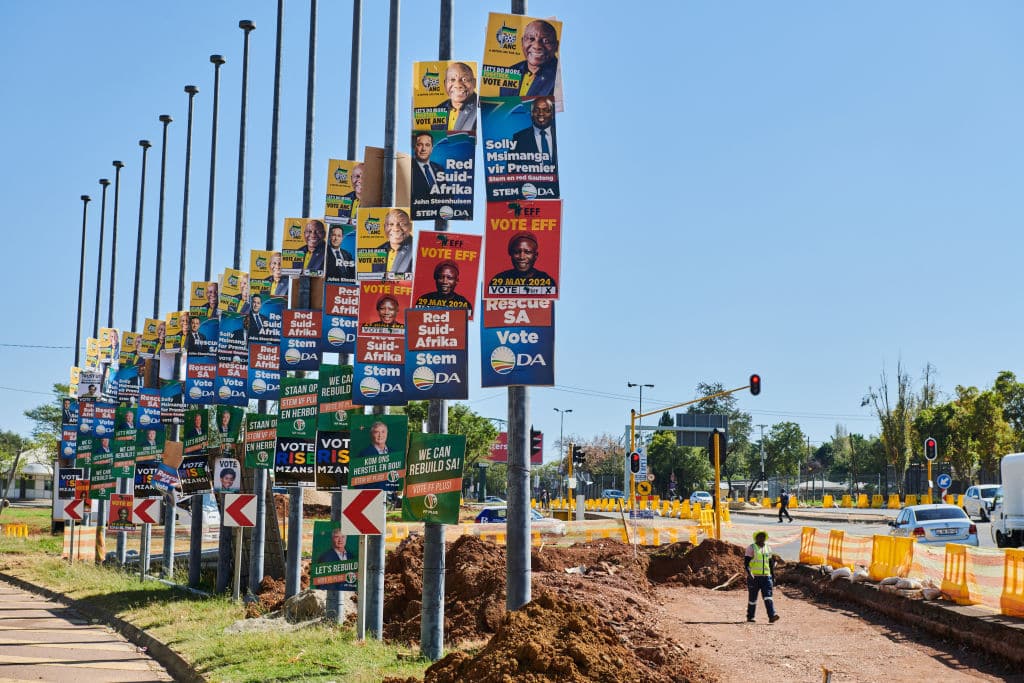With the country’s democratic voting process set to take place later this week, FORBES AFRICA speaks to several analysts about the mindset of the citizens and what may unfold in the coming days.
As South Africa prepares to head to the polls on May 29, social media has been abuzz with rhetoric and political memes in equal measure. But despite the light-hearted approach to the challenges they face, South Africans know that the decisions made later this week are no laughing matter.
A MarkData poll released by eNCA on May 20, showed that the ruling party is likely to receive 43.4% of the national vote. The figure is slightly higher than that of the Ipsos opinion poll from April that had the ANC attaining 40.2%.
“This is the party which liberated the country, which ended apartheid. This is the party which gave many voters their first house, electrification, running water, the opportunity of freedom. And I think that still lingers for many voters, certainly older voters,” says election analyst, Wayne Sussman, who was involved in the MarkData study.
The past few years have seen the unemployment rate soar, with it standing at 32.9% in the first quarter of 2024, numerous allegations of corruption and obstruction of justice, and 332 days of load shedding in 2023 alone. Yet, the ANC still has a significant element going for them, according to political analyst Asanda Ngoasheng.
Loading...
“The ANC continues to have the widest range of policies that cover the widest range of South Africans. They have a lot of diverse representation within them.”
Despite the governing party appealing to the broadest sphere of the population, many voters remain undecided as to where to cast their ballot.
“To a large extent, people do not feel close to political parties in the same way as they once did,” explains Collette Schulz-Herzenberg, an associate professor in the department of political science at the Stellenbosch University.
“Party identification has declined across the electorates. There’s just less people with a party identification. And we know from global studies that party identifiers are more likely to vote because they are motivated to do so.”
“The ANC has hurt the South African electorate so much that they mistrust it,” notes Ngoasheng.
“People don’t believe the government when it says loadshedding is over or when it says they’ve solved XYZ. We almost live in a situation of permanently waiting for the other shoe to drop. Even when there is potentially good news, people kind of wait for like, well, what’s the negative that’s going to come out of it?”
“What we’ve seen is that people tend to leave the ANC because they just feel dissatisfied with the performance of the party in government, but they don’t necessarily switch their vote to an opposition party,” explains Schulz-Herzenberg.
Despite past trends, those contesting the elections — especially first-time candidates — will be hoping the discontent motivates voters to try something new.
“There are 52 parties in the ballot. We’re in a very fragmented environment, and there’s a scenario that the five biggest parties in Parliament will all go backwards in this election,” Sussman says.
A showdown is expected in KwaZulu-Natal where former President Jacob Zuma is likely to take away votes from both the ANC and EFF with the Umkhonto weSizwe (MK) party.
“MK will be the big story in this election, even if they don’t reach their potential,” says Sussman. Based on the previously-mentioned MarkData predictions, the party will achieve 46.4% of the provincial vote.
It also remains to be seen whether the DA maintains its national position as the official opposition, or whether a loss of support will pivot the EFF to that spot.
“Rise Mzansi seem to be capturing quite a lot of the middle class vote across the racial line, which is interesting to observe considering that most Africans vote along racial lines,” says Ngoasheng.
Loading...
